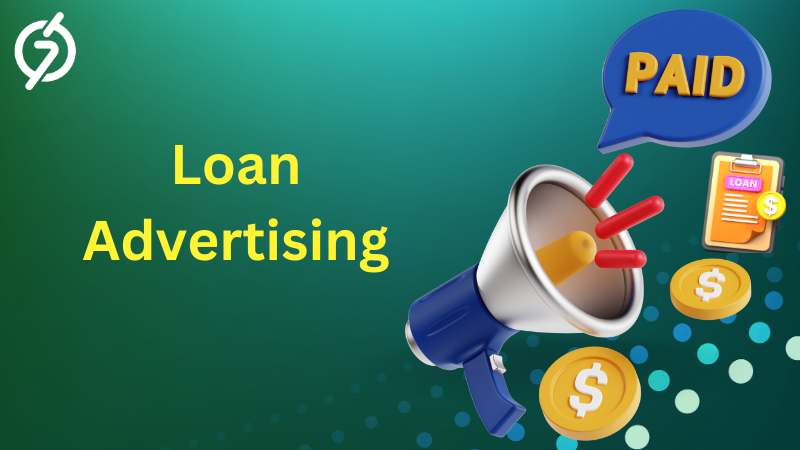The Evolution of Loan Advertising: From Print to Digital

The Changing Face of Loan Advertising
Not long ago, the most common way to learn about a new loan was through a newspaper ad, a flyer in your mailbox, or a catchy radio spot. Today, things look very different. Loan advertising has moved from traditional print formats to dynamic digital channels, giving lenders more ways to reach people while also allowing borrowers to compare, learn, and decide with more confidence. This shift isn’t just about technology—it’s about how consumer habits, trust, and choices have evolved.

Why the Old Playbook Doesn’t Work Anymore
Traditional advertising worked well in the past because options were limited. People relied heavily on local newspapers, magazines, or community events to discover new financial products. But in today’s world, customers don’t wait for offers to appear in print. They actively search online, compare loan products, read reviews, and expect tailored communication.
For lenders, this creates a challenge. Simply putting out broad messages doesn’t work anymore. Generic promotions can get ignored in a digital space where personalization and timing matter more than ever.
From Awareness to Trust
When we talk about loan promotion, it isn’t just about creating visibility—it’s about building credibility. Modern audiences want transparency. They want to know the details of interest rates, repayment flexibility, and even customer support quality before committing.
That’s why digital platforms—especially search and social ads—play a key role. They allow advertisers to segment audiences, test creatives, and measure engagement in real time. For example, a lender can run different campaigns for first-time borrowers versus seasoned business owners, each seeing content relevant to their needs.
For those who want to understand the deeper mechanics of how paid search helps in this process, resources like The Power of PPC in Loan Advertising: A Complete Guide can be valuable.
What the Shift Looks Like on the Ground
A few years back, many financial institutions still spent the majority of their budget on billboards and newspaper ads. But data revealed something interesting: leads from digital channels converted at a much higher rate. People clicking on targeted online ads often showed more intent compared to those who came across a flyer.
This didn’t mean that print was useless—it just meant it was no longer enough on its own. The most successful lenders found a balance by moving more weight toward digital loan campaigns while keeping selective offline channels alive for branding.
The Rise of Digital-First Strategies
Digital-first loan campaigns have opened new doors for small and large lenders alike. Unlike a static newspaper column, digital ads can be adjusted mid-campaign. If one ad isn’t performing, you can tweak the message, change the visuals, or refine targeting within hours.
The advantage? Marketing budgets are used more efficiently. Instead of spending blindly, advertisers can see where every dollar goes. Campaigns can focus on keywords that people are already searching for—like “low interest personal loan” or “business loan for startups”—making the outreach far more relevant.
Another advantage is scalability. A lender can start small, run a local test, and, if successful, expand the same strategy nationwide. Platforms such as PPC networks make this level of flexibility easier than ever. If you’re curious, you can even create a test campaign to experience how targeting works in practice.
Connecting on the Right Platforms
The concept of loan product promotion goes beyond placing ads. It’s about choosing the right platform where potential borrowers actually spend time. Social media channels are excellent for awareness, while search engines capture people when they’re already looking for solutions.
Here’s how the shift looks in action:
-
Print Ads (Past): One-size-fits-all, mass reach, limited feedback.
-
Digital Ads (Present): Highly segmented, real-time analytics, measurable ROI.
-
Future Possibility: Even more personalized campaigns using AI-driven insights, predicting borrower needs before they even search.
This layered approach ensures that promotions don’t feel intrusive but rather helpful—something consumers increasingly value.
Blending Old and New
The goal isn’t to declare print dead. Traditional channels still carry weight in certain markets and demographics. However, the real solution is integration—blending offline visibility with online precision. A borrower may see a poster at a bank branch but later research the product online before making a decision.
That’s why lenders who succeed today are those who combine both worlds—leveraging the credibility of print with the agility of digital.
A Smarter Path Forward
The evolution of loan advertising reflects broader changes in consumer behavior. From static newspaper ads to personalized digital campaigns, the journey shows us that people want relevance, trust, and convenience.
For lenders, this means shifting mindsets. Instead of thinking of advertising as one-way communication, it’s now a conversation—where feedback, targeting, and adaptability matter just as much as creativity. By embracing the tools available today, loan promotions can feel less like an interruption and more like a service that connects borrowers with the right solution at the right time.
- Art
- Causes
- Crafts
- Dance
- Drinks
- Film
- Fitness
- Food
- الألعاب
- Gardening
- Health
- الرئيسية
- Literature
- Music
- Networking
- أخرى
- Party
- Religion
- Shopping
- Sports
- Theater
- Wellness


